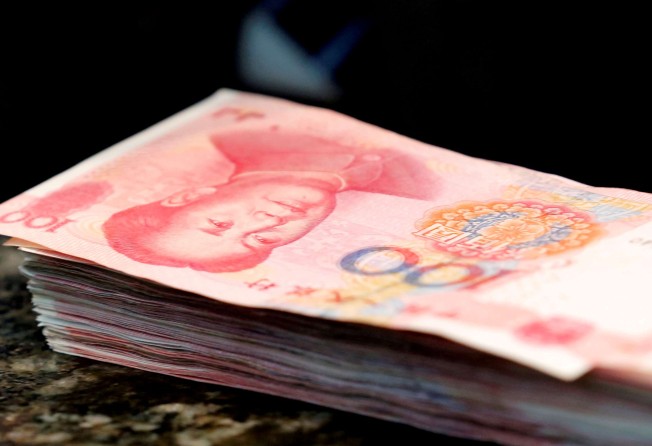Yuan regains critical 6.78 level as election uncertainty hits US dollar

The yuan strengthened on Monday morning after China’s central bank raised its reference rate by the most in a month, as the US dollar was dragged down by intensifying uncertainty over the presidential election.
Offshore yuan climbed 0.1 per cent to 6.7799 against the US dollar as of 11.30 am in Hong Kong on Monday, recovering the critical level of 6.78. Onshore yuan was also trading 0.14 per cent higher, at 6.7697 in Shanghai.
The People’s Bank of China raised the currency’s daily reference rate by 217 basis points to 6.7641 on Monday, the biggest increase in a month. Traders are allowed to trade up to 2 per cent either side of the reference rate for the day.
The strengthening of the yuan comes as uncertainty over next month’s US election increases following the FBI’s announcement that it is reviewing the investigation into Hillary Clinton’s emails. The revelation by the agency’s chief, James Comey, hit the foreign exchange markets on Friday.
The US dollar index, a gauge of the greenback against a basket of major currencies, fell by 0.62 per cent to 98.3 on Friday. It was trading at 98.49 as of 11.05 am Hong Kong time.
The yuan has declined sharply in October, increasing concerns over capital outflows.
In the latest move to stem outflows, China UnionPay on Saturday said that its cards issued in mainland China can no longer be used to pay for premiums on investment-related insurance products in Hong Kong.
“These premiums are not insignificant, in our view,” said Frances Cheung, head of rates strategy, Asia ex-Japan global markets at Societe Generale.
Premiums from mainland customers amounted to HK$ 16.9 billion during the second quarter of this year, while Hong Kong’s overall RMB deposit base fell by 48 billion yuan in that period, according to Cheung.
“It’s likely a sign of bigger things to come,” said Stephen Innes, senior trader at OANDA.
“Traders are adjusting year-end yuan targets and beyond as a deflation in property markets, and capital outflows should continue to accelerate.”